Irish general election: Voting is under way to elect new parliament
- Published
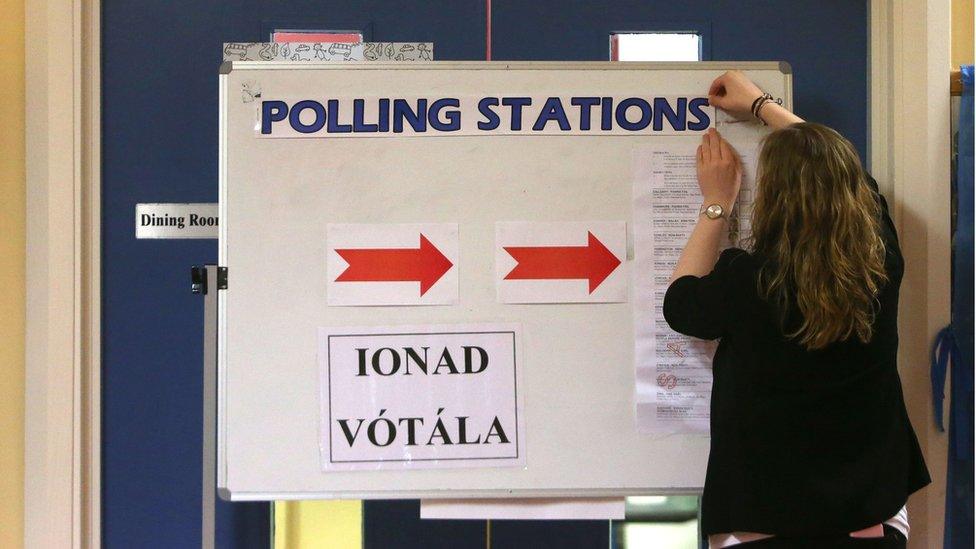
A returning officer adjusts a sign at a polling station in Castlebar, County Mayo, as voters go to the polls all around the state on Friday
Voting is under way in the Republic of Ireland to elect 157 new members of parliament.
The Irish parliament (Dáil) has reduced in size, meaning any new government needs the support of nearly 80 elected members (called Teachtaí Dála or TDs).
More than 3m people are eligible to vote, including Irish and UK citizens.
Polling stations across 40 different constituencies opened at 07:00 local time (same as GMT) and will close at 22:00 on Friday.
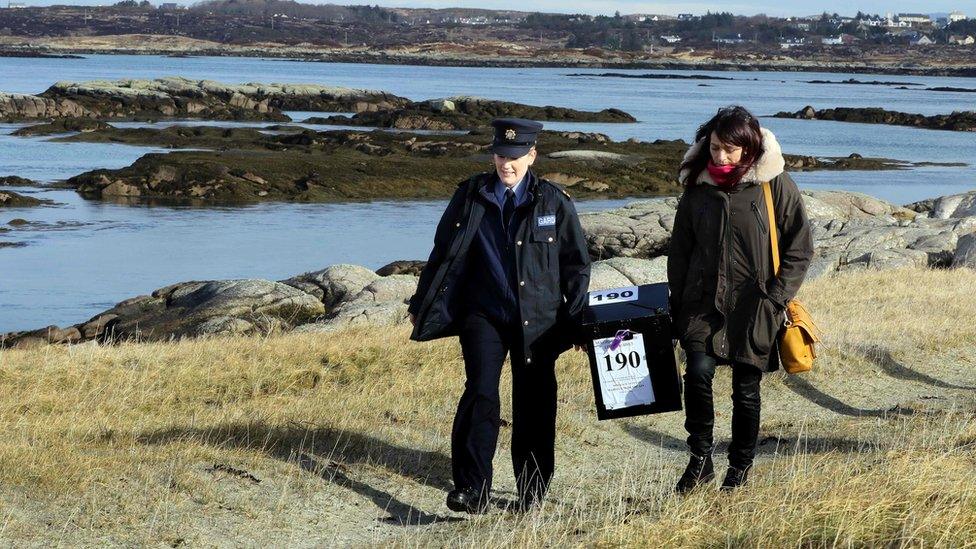
Special arrangements were made for Irish islands, such as Inishfree off the west coast, where voters cast their ballots a day before the rest of the electorate
More than 2,000 voters living on Irish islands off the coast of counties Donegal, Mayo and Galway got the chance to cast their ballots on Thursday.
The sealed ballot boxes were brought back to the mainland where they will be kept in police stations until counting begins on Saturday.
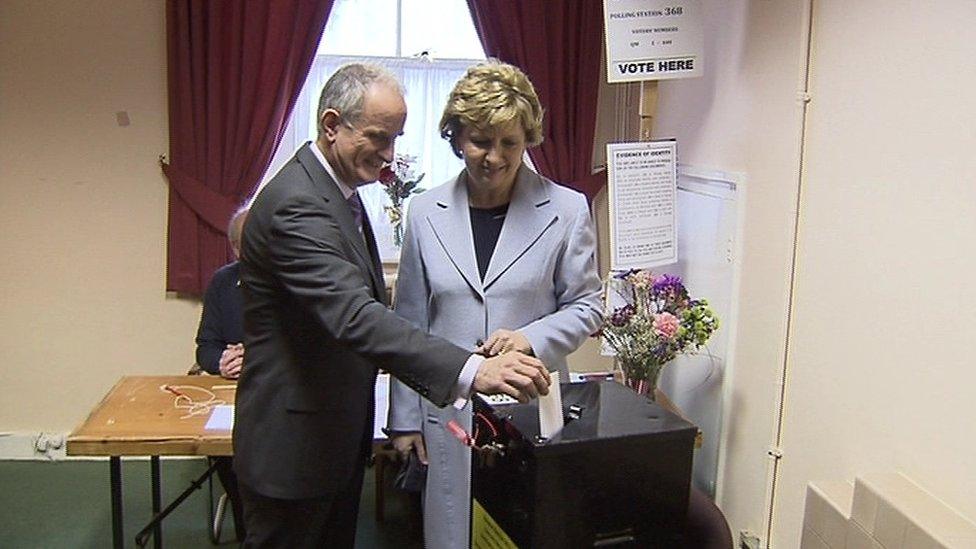
Former Irish president Mary McAleese casts her vote with her husband
The outgoing government was a coalition between the largest political party, Fine Gael, and the Labour Party.
Led by Prime Minister (Taoiseach) Enda Kenny from Fine Gael, the coalition had been in power for almost five years, since March 2011.
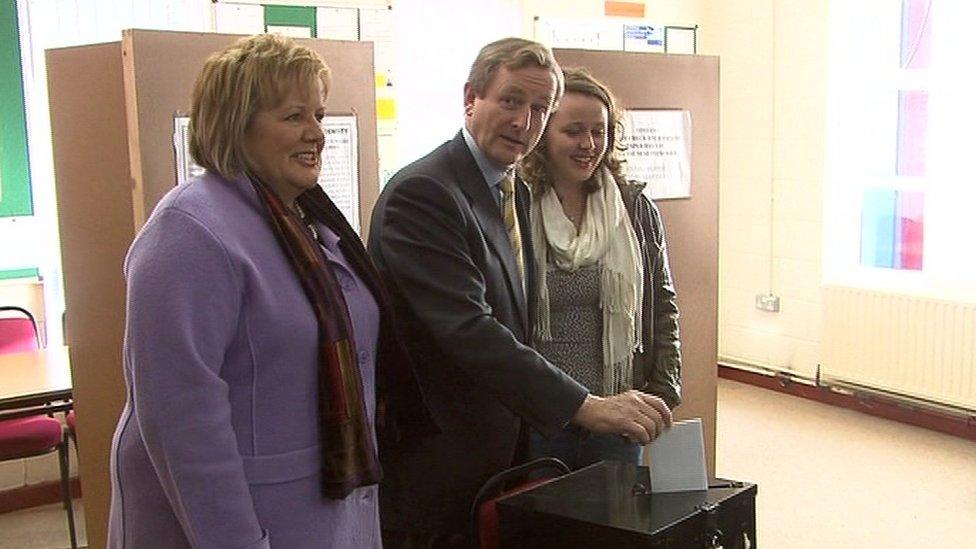
Fine Gael leader Enda Kenny casts his vote in the Irish general election
They are being challenged by 13 other parties, including the largest opposition party, Fianna Fáil, led by Micheál Martin, and Sinn Féin, led by Gerry Adams.
There are also a number of independents among the 552 people standing for election.
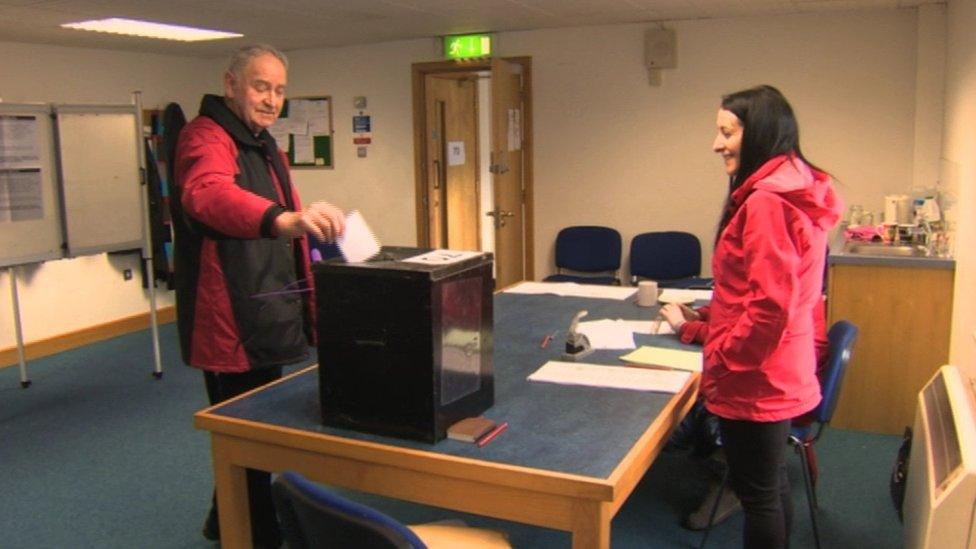
Voting in Letterkenny, County Donegal
TDs will be elected according to the single transferable vote (STV) system, in which candidates have to reach a quota, before their surplus votes are distributed to other candidates.
There will be a total of 158 seats in the next parliament, but one of them has already been filled.
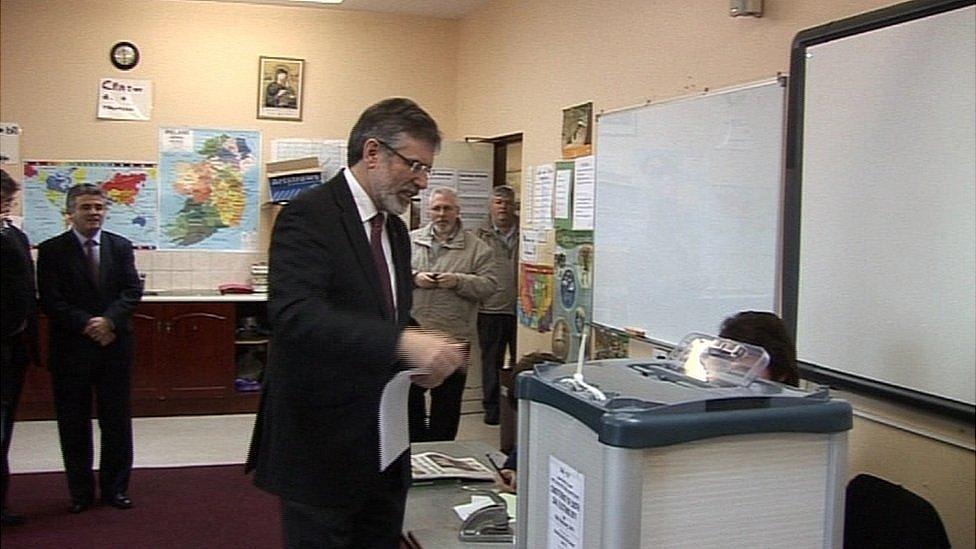
Sinn Féin president Gerry Adams votes in the Irish general election
That is because, under Irish electoral law, the Speaker (Ceann Comhairle) is automatically re-elected unless they have announced their intention to retire.
The election count is expected to last over the weekend.
'No selfies'
A record number of young people are expected to vote on Friday and this age group, in particular, have been warned that taking photographs of themselves in polling booths is strictly forbidden, as it could identify individual voters and their ballot papers.
Cork County Returning Officer Sinead McNamara told Irish broadcaster, RTÉ that "selfies" were "a modern phenomenon" but electoral officials would not permit them to interfere with the democratic process.
"I know it's nice, particularly for first-time voters - they like to record the fact that they are voting for the first time. That's OK to certain extent, but we'll be saying to our staff 'absolutely no selfies in the polling booth itself'.
"The primary function is to preserve the integrity and secrecy of the ballot, so taking a selfie - it could include a photograph of a marked ballot paper - which is an absolute no-no."